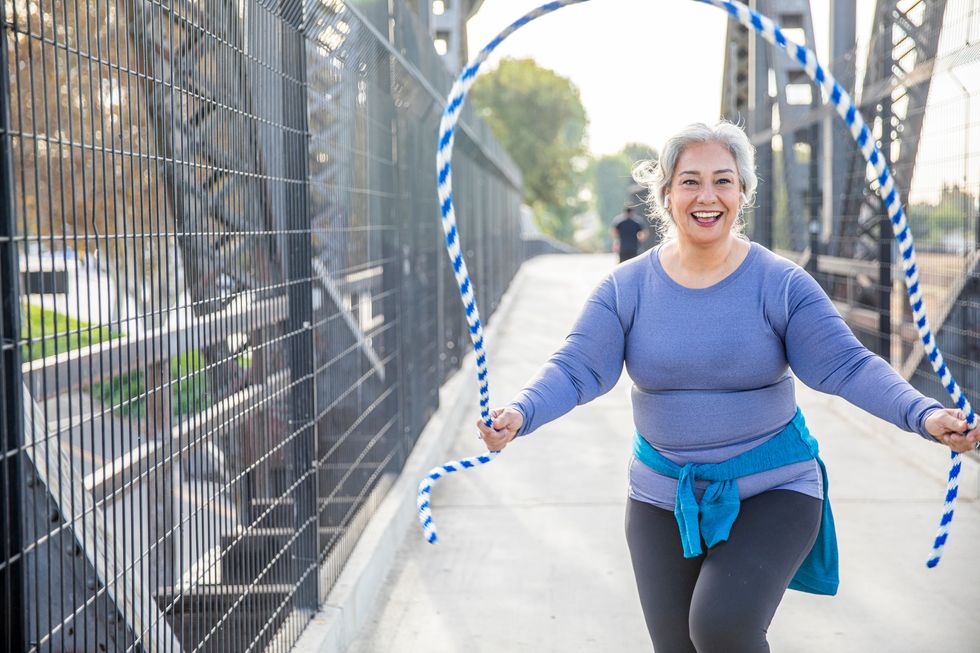It's awkward to talk about weight. Nearly every woman I know is hyperaware, and perhaps hyper-self-conscious, of her current and wished-for state. Approaching and following menopause, we women tend to gain weight even if we maintain our diet and exercise regimens; three to 30 pounds gained is the typical range, usually at a rate of one to five pounds a year.
I'm not about "fat-shaming" or about embracing one body type over all others. I really hope for the day when all of our various body shapes and sizes are prized; I reject the cultural messages that tell us that self-esteem can only come from being a certain dress size.
At the same time, I'm doing a disservice to women if I don't talk about some health realities that correlate with weight.
Read more about weight management.
If you follow the news, you can't have escaped the news that obesity continues to increase in the U.S. The most recent 10-year comparison reported by the Centers for Disease Control and Prevention's National Center for Health Statistics says the proportion of obese adults increased by nearly a third by 2016. Notably, that report showed a greater rate of increase among adults than among children, although the "childhood obesity epidemic" has stayed in the headlines.
I mention that because the weights we are now are a modern phenomenon: When we talk about accepting our bodies as they are now, we're not necessarily talking about bodies as they were designed to be.
Also recently in the news are studies that link obesity and dementia and that show that losing weight after age 50 can reduce breast cancer risk. (We already knew that excess weight is the leading controllable risk factor for breast cancer; uncontrollable factors are things like your age and genetic makeup.)
Obesity is linked to increased risk for many cancers, including colorectal, uterine, kidney, head and neck, esophageal, pancreatic, gallbladder, thyroid and endometrium (for which obesity is the number-one risk factor; in 30 years, I've had only two or three non-obese patients diagnosed with endometrial cancer).
We've known that obesity increases risk for cardiovascular disease and type 2 diabetes. We can also see that excess weight makes for more stress on joints as we age, and we know it's a trigger for hot flashes.
We all live within a culture with systems that make food available. Much of that food is processed, or even "ultra" or "hyper" processed. In many ways, our context works against, not for us, as we work to maintain healthy bodies. Depending on our circumstances, it can be difficult to find, afford and prepare the healthy food we want to eat. Learn how to fight menopausal pounds with diet.
The simplest reminder of our focus comes from Michael Pollan, who summarizes his Seven Rules for Eating in seven words: "Eat food, not too much, mostly plants."
And move. Burning calories is as important as choosing how many and which kind to consume. Find out how to fight menopausal weight gain with exercise.
One more thing: If it's challenging to change your diet, remember that the goal is not perfection, but progress. And if it's easy for you, advocate for others, who may have greater obstacles to overcome.
Barb DePree, MD, has been a gynecologist for 30 years, specializing in menopause care for the past 10. Dr. DePree was named the Certified Menopause Practitioner of the Year in 2013 by the North American Menopause Society. The award particularly recognized the outreach, communication and education she does through MiddlesexMD, a website she founded and where this blog first appeared. She also is director of the Women's Midlife Services at Holland Hospital, Holland, Michigan.







